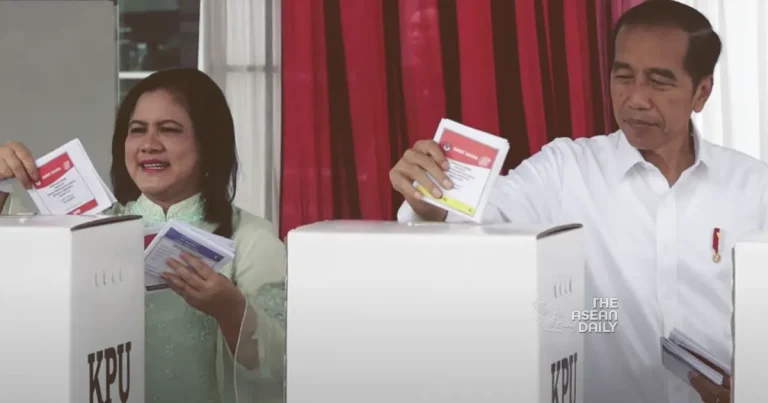14-2-2024 (JAKARTA) Polling stations across Indonesia have officially closed as of 1 pm local time (2 pm Singapore time), marking the end of voting in the country’s presidential election. The unofficial quick count of ballots is now underway, with three candidates competing to succeed the popular President Joko Widodo, who is stepping down after a decade in office.
Former special forces lieutenant-general and current Defence Minister Prabowo Subianto, considered the frontrunner in various electability surveys, is in a tight race with former Jakarta governor Anies Baswedan and former Central Java governor Ganjar Pranowo.
Mr Prabowo, alongside his running mate President’s son Gibran Rakabuming Raka, has pledged to continue Mr Widodo’s development programmes, including the planned relocation of the administrative capital from Jakarta to East Kalimantan.
Mr Ganjar, partnering with former law and security minister Mahfud MD, has promised to enhance the president’s policies in education and healthcare. Meanwhile, Mr Anies, running with veteran politician Muhaimin Iskandar, has indicated plans to review and potentially roll back certain programmes such as the capital relocation.
Millions of Indonesians cast their votes earlier on February 14 to elect not only a president and vice-president but also parliamentary and local representatives. In the legislative poll, thousands of aspiring lawmakers are vying for 580 seats in the national Parliament, known as the House of Representatives, along with around 20,000 seats at the regional level.
Vote counting will commence at local district levels before being consolidated nationally for both presidential and legislative elections. Indonesia’s election law allows up to 35 days for the completion of the vote counting process due to the country’s vast territory and a large voter base of approximately 205 million. The General Elections Commission anticipates official results to be announced no later than March 20.
Quick counts conducted by polling agencies and research institutions have become a credible method to predict election outcomes since their introduction during the inaugural presidential election in 1999. Among those conducting vote sampling this time are Jakarta-based think-tank Centre for Strategic and International Studies, political consultancy Cyrus Network, and Litbang Kompas, the research arm of Kompas daily. These entities are known for their reliability and independence.
Thousands of field workers and volunteers have been deployed to polling stations across 38 provinces nationwide to collect vote samples. According to Indonesian law, early vote sampling counts can only be released two hours after polls close in western Indonesia, where Jakarta is located, or at 3 pm local time (4 pm Singapore time).
Mr Widodo emerged victorious over Mr Prabowo in both the 2014 and 2019 presidential elections. In the 2019 re-election, Mr Widodo secured 55.5 per cent of the votes against Mr Prabowo’s 44.5 per cent. The latter’s protests over the result sparked two days of deadly riots in Jakarta, claiming at least eight lives and injuring hundreds more.




